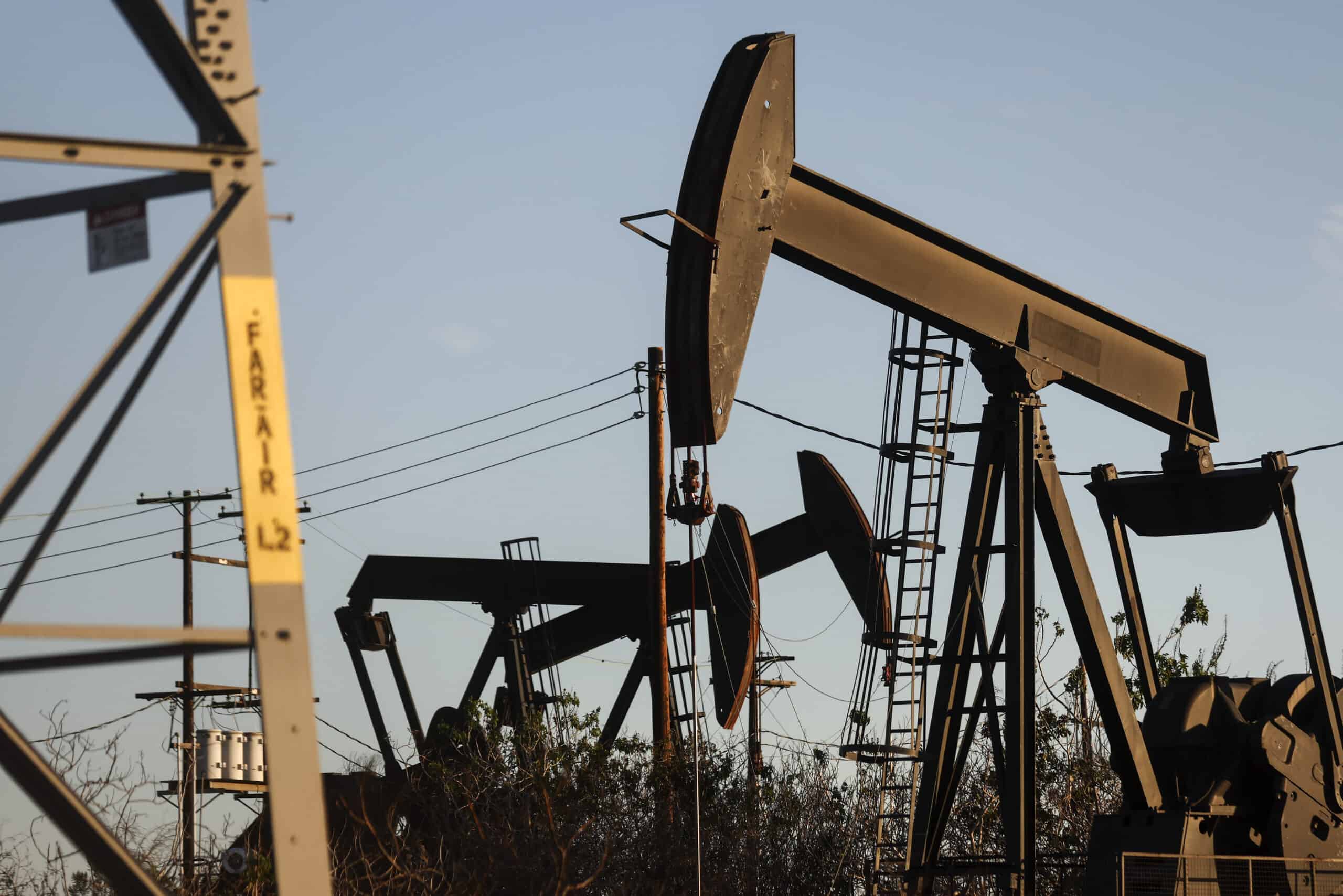
24/7 Insights
- Oil has traded solidly higher this summer and may continue the trend.
- While OPEC is positive on oil prices, some worry that Chinese demand could sputter.
- Grab this free report today: Access 2 legendary, high-yield dividend stocks Wall Street loves.
Since topping out at $120 in the summer of 2022, the major oil benchmarks had traded down every month until bottoming at the beginning of December that year. The decline from the top in June of 2022 was a staggering 40%, and while the oil majors can still make money at that level, with a declining price, many opted to slow or halt production. By March of 2023, West Texas Intermediate had dropped to $67.61, a bottom that remained until late June when oil broke out.
After the breakout and moving to over $90 per barrel, oil hit a wall last September and dropped 22% until spring. Brent crude has since traded back over the $85 level in a solid move higher, while West Texas Intermediate is back over $82.
This has all occurred despite war breaking out in the Middle East after the devastating Hamas attack on Israel last October. Now that war has expanded, there are worries that Iran could become more involved as Israel turns its attention to Hezbollah. If oil supplies are threatened in the region, which many now fear, prices could explode.
With the benchmarks back close to 2024 highs and the best levels since April it makes sense for investors to consider buying some of the biggest and best mega-cap leaders. Four stocks make sense now; all pay dependable dividends, and all are rated Buy at major Wall Street firms.
Why we are covering energy

With inflation dropping for the first time since the summer of 2020 recently, many feel that the Federal Reserve could lower interest rates in September. Falling interest rates are a huge positive for the energy sector as it helps to lower exploration and production costs.
BP
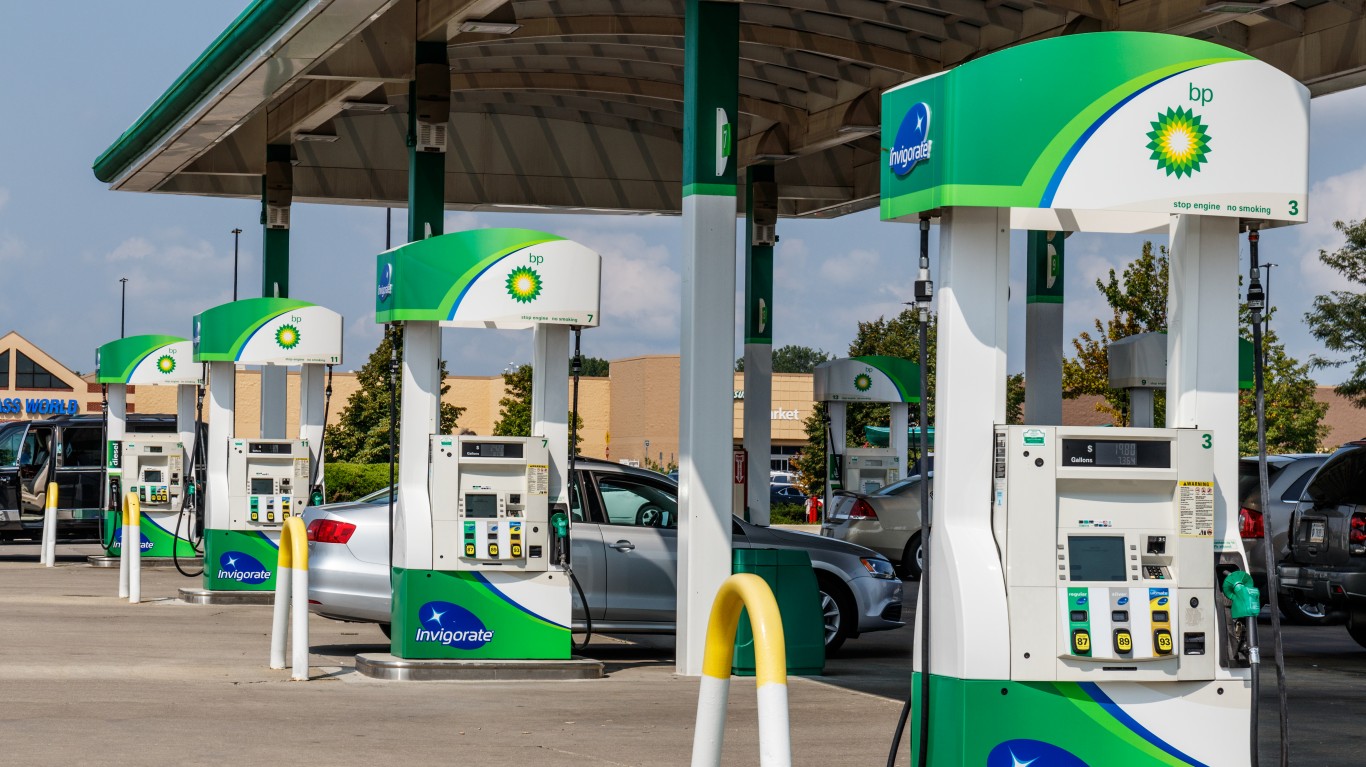
This company is a premier European integrated oil giant, paying shareholders a hefty 5% dividend. BP PLC (NYSE: BP) engages in the energy business worldwide.
It operates through four segments:
- Gas & Low Carbon Energy
- Oil Production & Operations
- Customers & Products
- Rosneft
BP produces and trades natural gas, offers biofuels, operates onshore and offshore wind and solar power generating facilities, and provides de-carbonization solutions and services, such as hydrogen and carbon capture, usage, and storage.
The company is also involved in the convenience and mobility business, which manages the sale of fuels to wholesale and retail customers, convenience products, aviation fuels, and Castrol lubricants; refining, supply, and trading of oil products; and operation of electric vehicle charging facilities.
In addition, it produces and refines oil and gas and invests in upstream, downstream, and alternative energy companies, advanced mobility, bio and low-carbon products, carbon management, digital transformation, and power and storage areas.
Chevron
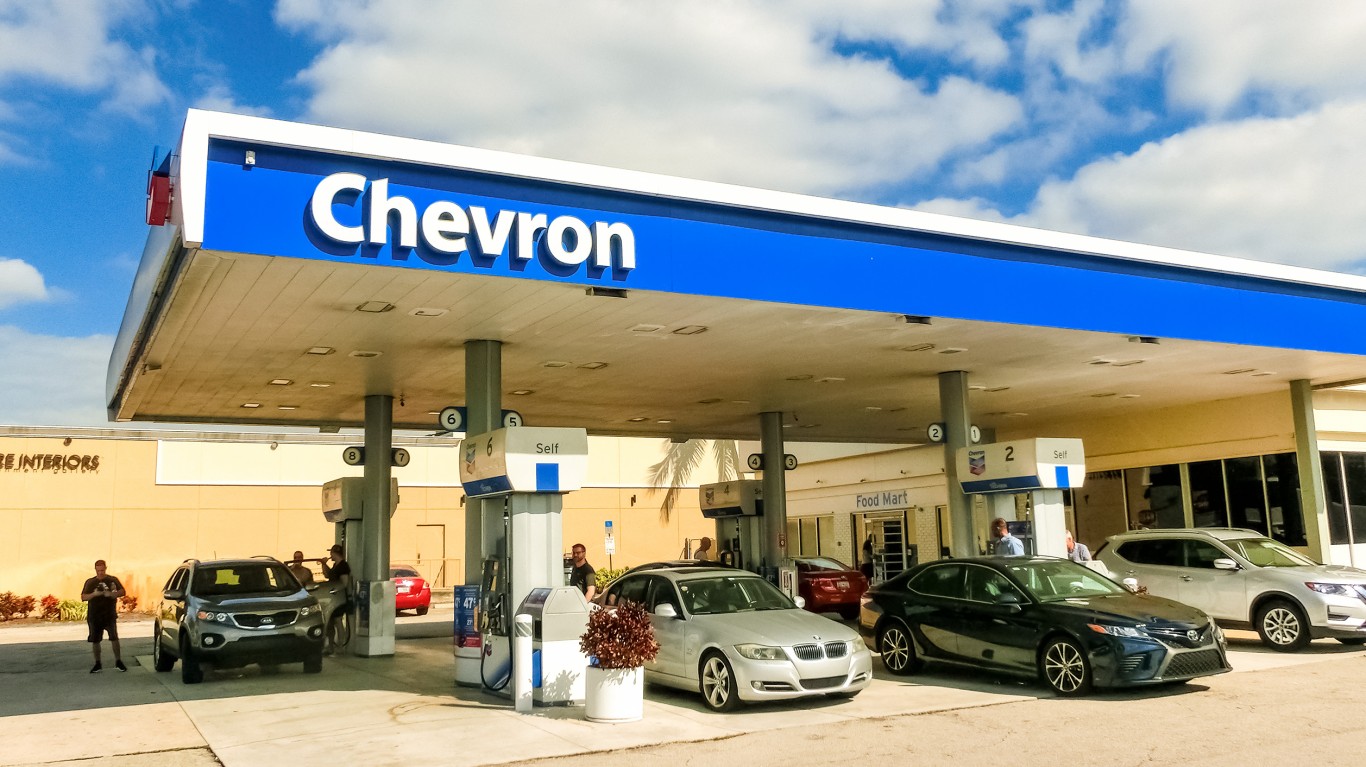
This integrated giant is a safer option for investors looking to position themselves in the energy sector. It has a sweet 4.20% dividend. Chevron Corp. (NYSE: CVX) engages in integrated energy and chemicals operations worldwide through its subsidiaries.
The company operates in two segments:
- Upstream
- Downstream
The Upstream segment is involved in the following:
- Exploration, development, production, and transportation of crude oil and natural gas
- Processing, liquefaction, transportation, and regasification associated with liquefied natural gas
- Transportation of crude oil through pipelines
- Transportation, storage marketing of natural gas, as well as operating a gas-to-liquids plant
The Downstream segment engages in:
- Refining crude oil into petroleum products
- Marketing crude oil, refined products, and lubricants
- Manufacturing and marketing renewable fuels
- Transporting crude oil and refined products by pipeline, marine vessel, motor equipment, and rail car
- Manufacturing and marketing of commodity petrochemicals, plastics for industrial uses, and fuel and lubricant additives
It also involves cash management, debt financing, insurance operations, real estate, and technology businesses.
Chevron announced in the fall that it has entered into a definitive agreement with Hess Corp. (NYSE: HES) to acquire all of the outstanding shares of Hess in an all-stock transaction valued at $53 billion, or $171 per share based on Chevron’s closing price on October 20, 2023. Under the terms of the agreement, Hess shareholders will receive 1.0250 shares of Chevron for each Hess share. The transaction’s total enterprise value, including debt, is $60 billion.
Three lawsuits have been filed against Hess, charging inadequate disclosure over the sale, and Chevron has said arbitration over Hess’ Guyana assets could delay the closing timeline until October 2025. However, most Wall Street analysts feel the deal will ultimately be completed, and Chevron will emerge even more powerful in the energy sector.
Enterprise Products Partners
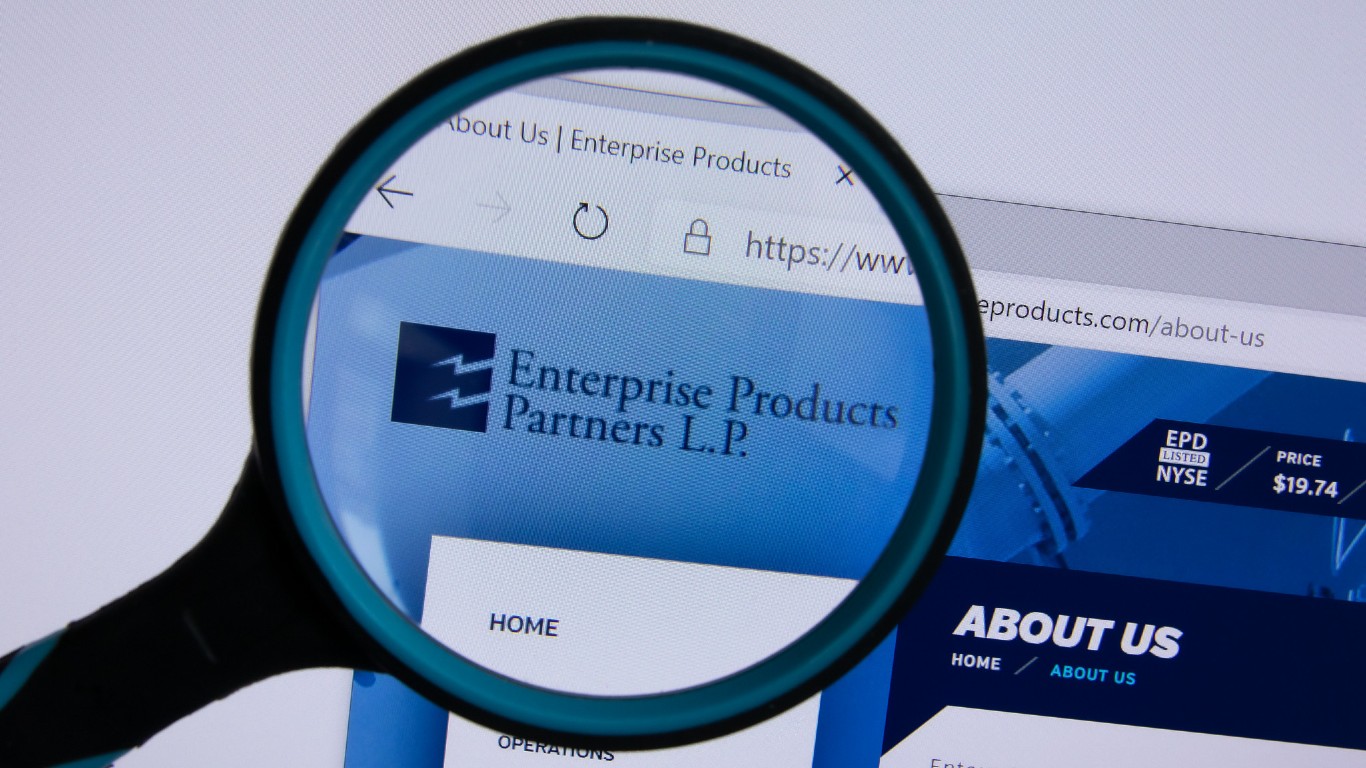
This company is one of the largest publicly traded energy partnerships and pays a 7.06% dividend. Enterprise Products Partners L.P. (NYSE: EPD) provides various midstream energy services, including:
- Gathering
- Processing
- Transporting and storing natural gas, natural gas liquids (NGL) fractionation
- Import and export terminalling
- Offshore production platform services
The company has four reportable business segments:
- Natural Gas Pipelines and Services
- NGL Pipelines and Services
- Petrochemical Services
- Crude Oil Pipelines and Services
One reason many analysts may like the stock is its distribution coverage ratio. The company’s coverage ratio is well above 1x, a testament to its strong financial performance and making it relatively less risky in the MLP sector.
Exxon Mobil
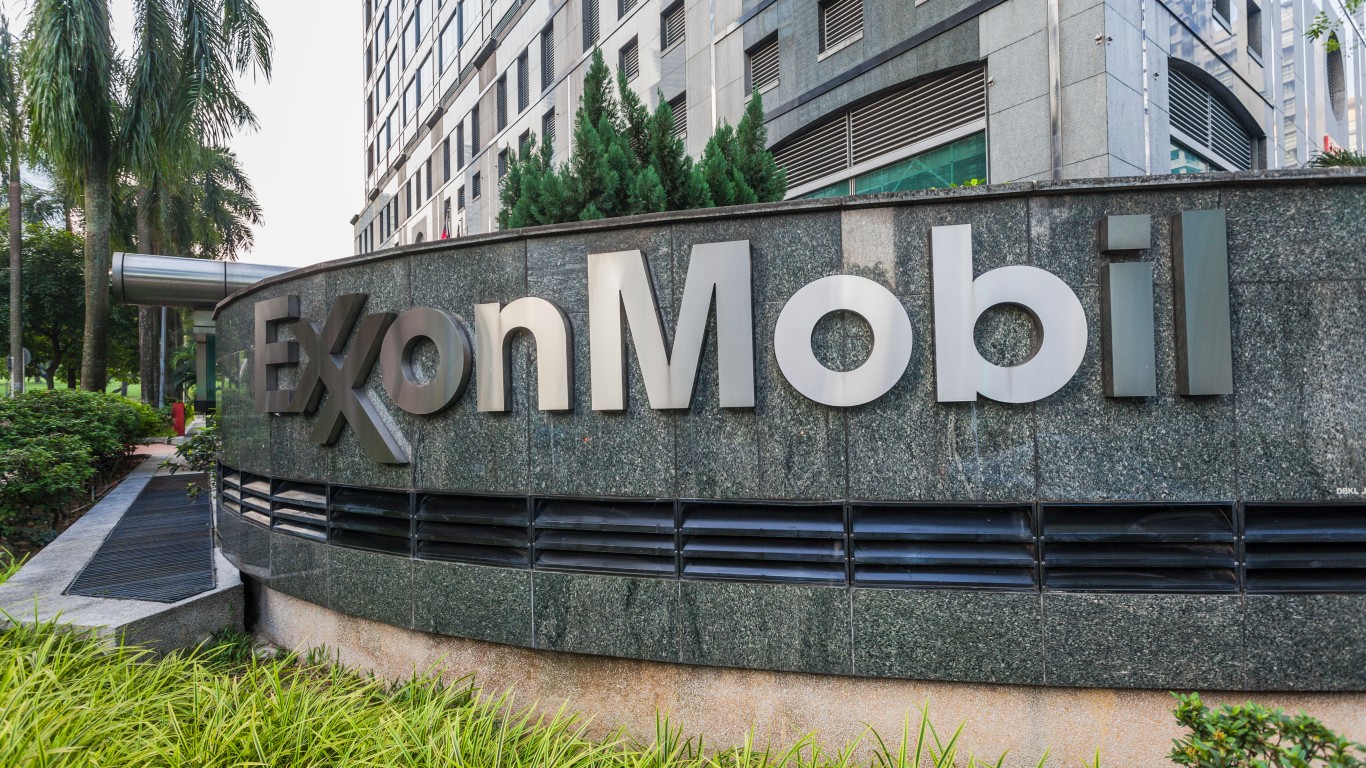
The slow increase in oil prices still offers investors an excellent entry point, and they will gladly grab a strong 3.40% dividend. Exxon Mobil Corp. (NYSE: XOM) is the world’s largest international integrated oil and gas company, exploring for and producing crude oil and natural gas in:
- The United States
- Canada
- South America
- Europe
- Africa
- Asia
- Australia/Oceania.
Exxon Mobil’s operations extend beyond oil and gas exploration. The company also manufactures and markets a range of commodity petrochemicals, including olefins, aromatics, polyethylene and polypropylene plastics, and specialty products.
In addition, it transports and sells crude oil, natural gas, and petroleum products, showcasing its adaptability and diverse revenue streams.
Top Wall Street analysts expect the company to remain a key beneficiary in a higher oil price environment, and most remain very optimistic about the company’s sharp positive inflection in capital allocation strategy,
Exxon Mobil completed its purchase of oil shale giant Pioneer Natural Resources in a $59.5 billion all-stock purchase. The deal created the largest U.S. oilfield producer and guaranteed a decade of low-cost production.
Are You Ahead, or Behind on Retirement? (sponsor)
If you’re one of the over 4 Million Americans set to retire this year, you may want to pay attention.
Finding a financial advisor who puts your interest first can be the difference between a rich retirement and barely getting by, and today it’s easier than ever. SmartAsset’s free tool matches you with up to three fiduciary financial advisors that serve your area in minutes. Each advisor has been carefully vetted, and must act in your best interests. Start your search now.
Don’t waste another minute; get started right here and help your retirement dreams become a retirement reality.
Thank you for reading! Have some feedback for us?
Contact the 24/7 Wall St. editorial team.





